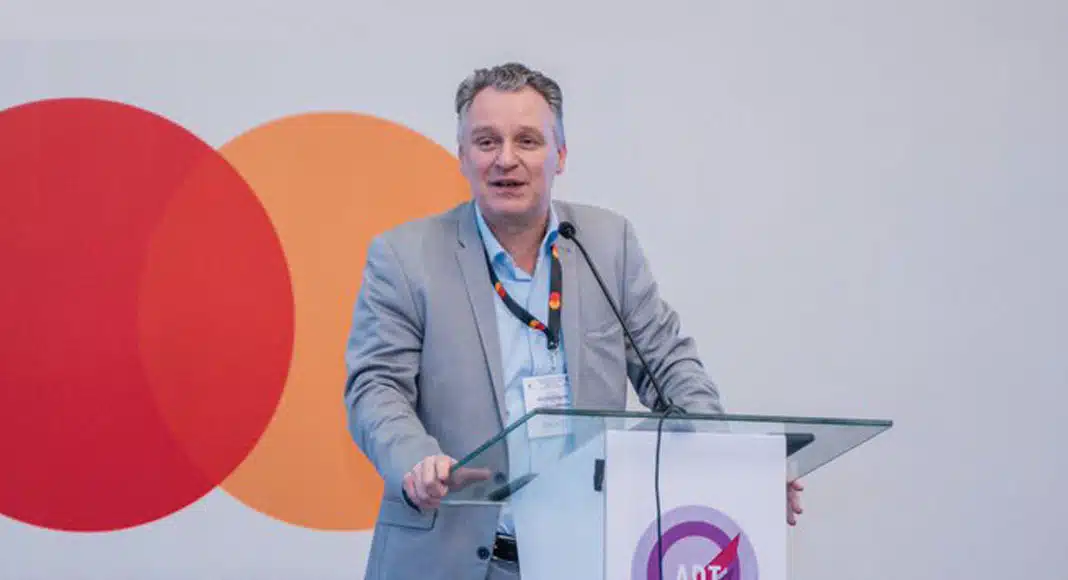
CEO calls for better regulation in telecoms, fintech
Safaricom Telecommunications Ethiopia has ambitious plans to triple its telecom tower network over the coming three years, set to invest more than USD 1.5 billion to extend its coverage across the country despite the obstacles posed by security concerns.
The company currently operates a network of 2,500 towers, 1,000 of which it leases from the state-owned Ethio telecom, according to Wim Vanhelleputte, CEO of Safaricom Ethiopia.
The private telecom operator has coverage in Addis Ababa and 26 other urban areas as well as on roads. But this is far from the target, according to Vanhelleputte, who was appointed CEO last July.
“The country is very big; we aren’t even half way, and we need up to 7000 towers to really cover the entire population” he told The Reporter.
– Advertisement –
Safaricom Ethiopia’s expansion goals, many of which are part of the terms it agreed to when it won the bid for the country’s first private telecom operator’s license in 2021, have been aided by duty exemptions on the import of equipment. But the CEO notes that Ethiopia’s security issues pose a major hurdle.
“We would love the whole country to be open, but now there are parts of the country where we cannot provide data services because of unresolved security troubles,” said Vanhelleputte. “I really hope in the next two or three years that the entire country opens up.”
The CEO of Safaricom Ethiopia observes the security concerns will make it difficult to achieve the targets set out in the country’s 10-year digitization plan, while limited access to smartphones and limitations in regulation and policymaking also pose challenges.
The effectiveness of Safaricom’s network coverage expansion efforts hinges on public access to smartphones, which Vanhelleputte and his team worry is too low. Safaricom Ethiopia estimates 25 million, or one in five Ethiopians owns a smartphone. It is a figure that the CEO wants to see rise by three or four folds.
The figure also contrasts with data from Ethio telecom, which estimates there are less than 15 million smartphones active in the country.
Regardless, Vanhelleputte understands the difficulties in expanding smartphone ownership.
“People need to spend up to one or two hundred dollars for a good smartphone. [The import of smartphones] requires access to foreign currency, which is also a big challenge,” he said.
Safaricom Ethiopia sees this as an opportunity to promote domestic mobile phone assembly plants that can produce affordable smartphones that would create consumers and enable them to access the digital programs being implemented countrywide as part of the 10-year initiative.
The company is also launching a device financing program in collaboration with vendor companies and banks. The scheme that would allow consumers to pay off the cost of a smartphone monthly is expected to be launched within the next one year. Safaricom Ethiopia is in talks with smartphone assemblers and banks to take its smartphone accessibility strategy to the next level, according to the CEO.
“We’re trying to get the right balance of making it affordable for a monthly fee payout to the customer and also attractive for the customers to want to get the smartphones,” he said.
Safaricom Ethiopia is obliged to cover a quarter of the Ethiopian population by 2025, but the lax enforcement of regulation in the state dominated industry has posed issues.
“We don’t believe that government institutions should promote monopoly. On the contrary, they should promote open access to as many players as possible,” Vanhelleputte told The Reporter.
He observes the necessary policies are set forth in regulations put forth by the National Bank of Ethiopia (NBE) and the Communications Authority (ECA) but need to be properly enforced.
“Collectively what we want is the regulators on the fintech and on the telecom side to enforce the policy,” Vanhelleputte said. ”Send out a strong message for all the private players that everybody is getting equal access to offer services and then let the best or cheapest service win. The customer will decide who the best is.”
Last week, the ECA enacted a 25.8 percent reduction on mobile termination rates (MTR) for the next five years, bringing the cost down from Birr 0.31 to Birr 0.23 per minute for calls between Ethio telecom and Safaricom Ethiopia networks. The move emanates from a 2022 interconnection agreement between the two moderated by the regulator. It will be effective on May 1, 2024, and apply until April 2025.
“It is a wonderful development,” Vanhelleputte told The Reporter. “The cut down rate means more interaction between the customers of the two companies, meaning growth for both of us.”
.
.
.
#Safaricom #Ethiopia #Triple #Network #Coverage #Years
Source link











